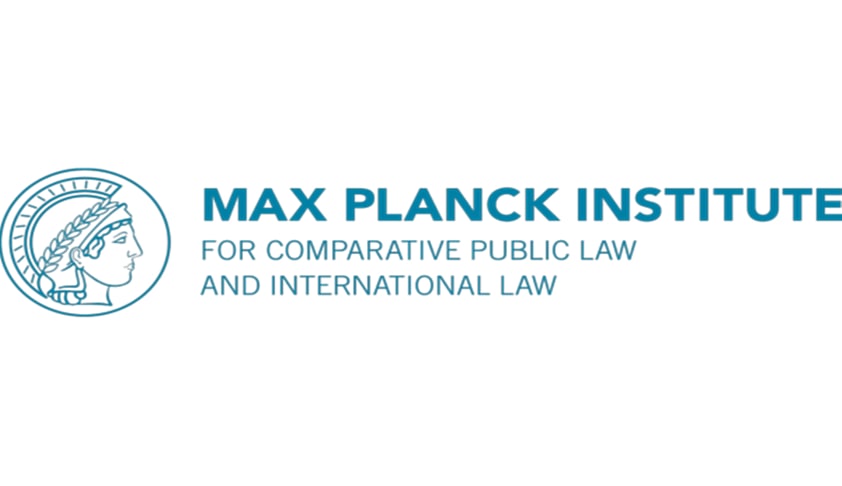We have the
following Call for Papers for a conference on “Politics and the Histories of
International Law” by the Max Planck Institute for Comparative Public Law and International Law.
CONFERENCE THEME
L’histoire n’est pas une religion. L’historien n’accepte aucun dogme, ne
respecte aucun interdit, ne connaît pas de tabous. Il
peut être dérangeant. - LIBERTÉ POUR L’HISTOIRE, 2005
Almost all
scholarship on international law and its history has political implications.
Some say that international legal scholarship is inevitably ideological in
nature and that its findings depend on concealed political preferences. Put
differently, legal scholarship could be nothing more than the pseudo-objective
defence of ruling ideologies. Most famously, Hans Kelsen had denounced a
‘tendency wide-spread among writers on international law’ to produce ‘political
ideology’. Kelsen sought to escape this by writing books of a ‘purely juristic
character’ (Principles of International Law, 2nd ed. 1967, ix). In his foreword
to the commentary on the UN Charter of 1950, he stressed that ‘separation of
law from politics in the presentation of national or international problems is
possible’ (The Law of the United Nations, 1950, viii).
Many nowadays
doubt that purging international legal scholarship of politics would work. In
2004, Martti Koskenniemi put this as follows: ‘The choice is not between law
and politics, but between one politics of law, and another. Everything is at
stake, but not for everyone’ (EJIL 16 (2005), 123).
So, which
factors ‘politicise’ international legal scholarship? The first factor is that
the object under investigation is itself a political matter. International law
has throughout its history been political, because its content depends on the
political power of the parties negotiating the treaties, and because it
transports political values.
Scholars
themselves cannot completely avoid being more or less political actors, because
their value judgements, which are inescapable, often carry political
implications. However, an important difference between doing scholarship and
doing politics lies in the authors’ main intention: It is, ideal-typically, not
the primary purpose of scholarship to make politics and unbounded evaluation
but to generate knowledge − which could then be used politically, by the author
herself or by others. Along this line, most scholars of history seek to uncover
various aspects of past events and debates and to contextualise them, thereby
realising a modicum of objectivity and neutrality. Some consciously try to
avoid judgment, while others are more prone to judging deliberately and to
employing historical insights in contemporary political debates.
Research on the
history of international law is not only inherently political but moreover
specifically ‘risk-prone’. Writing on topics such as genocide, state of
exception, failed states, humanitarian intervention, asymmetrical war, or
cyber-attacks is especially liable to being used and abused by participants in
political controversies. In fact, when it comes to writing history, the fight
over master narratives is especially fierce, among governments, in different
academic camps, and between governments and academics. The notorious example
are memory laws which consecrate specific views on atrocities of the past
(especially genocidal massacres) and which sometimes additionally criminalise
the denial of those atrocities. These attempts to close historical debates by
law have been criticised by historians, most famously in the petition ‘Liberté
pour l‘histoire’ by French historians reacting against various French memory
laws.
To conclude, the
interpretations of historical events are almost inescapably political, and
potentially have the power to shape international relations: ‘On résiste à
l’invasion des armées; on ne résiste pas à l’invasion des idées’ (Victor Hugo,
Histoire d’un crime, 1877/2009, 639). It is against this background that the rights
and responsibilities of those researching on the history of international law
should be seen.
The JHIL invites
scholars to engage with the questions of the role of politics and ideology in
the historiographies of international law. We welcome propositions for papers
which address methodological questions, as well as case studies or
historiographical analyses that focus on certain contentious subjects within
the field of international law and its history
PRACTICAL MATTERS
- Date: The conference will last from Friday morning, 15 February to Saturday noon (16 February 2019). It will start with an informal get-together on Thursday evening, 14 February.
- Venue: Max Planck Institute for Comparative Public Law and Public International Law, Im Neuenheimer Feld 535, D-69120 Heidelberg, Germany.
- Scholars who would like to present a paper at the conference are invited to submit a title and abstract (250–500 words) to the managing editor of the JHIL (submissions.jhil@mpil.de) before 1 June 2018. Abstracts will be assessed by the editors of the JHIL with involvement of the journal’s Academic Advisory Board. A decision on acceptance of the abstract will be communicated by 1 July 2018.
- Authors of accepted abstracts will be requested to submit their draft papers by 1 February 2019. The draft will be circulated among participants (authors and admitted engaged listeners).
- Final versions of the papers will be due by 30 March 2019. Papers will then be submitted to the normal review procedure of the JHIL, online at: editorial manager.com/jhil.
- See the “Instructions for authors” online at: brill.com/files/brill.nl/specific/ authors_instructions/JHIL.pdf.
- The Max Planck Institute will cover the costs of the accommodation of accepted paper presenters (up to three nights) and will offer a needs-based subsidy towards travel costs.
- An additional call for engaged listeners will be issued shortly.
- For updated technical information on the conference see mpil.de/en/pub/ publications/periodic-publications/jhil.cfm.
For more information,
please visit the website of the Max Planck Institute for Comparative
Public Law and International Law


No comments:
Post a Comment
Note: Only a member of this blog may post a comment.